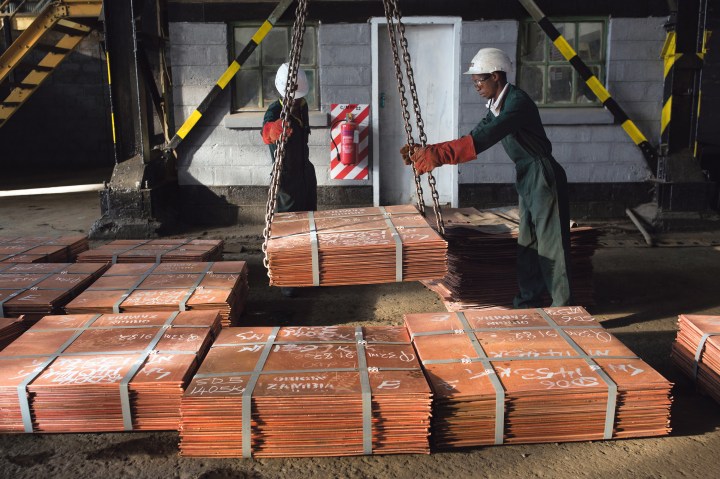Business Maverick
Half of all copper mining is at risk with climate change

As projections for all the copper needed in the clean-energy transition help send prices of the wiring metal to two-year highs, a new report highlights the risks to future metal supplies from climate change.
Even in an optimistic low emission scenario for 2050, more than half the world’s copper mines will be in areas exposed to drought risk that’s deemed significant, high or extreme, according to a PricewaterhouseCoopers LLP report. For two other energy transition metals — lithium and cobalt — drought exposure is even higher at 74%, the study found.
Read More: Why the World Needs More Copper — a Lot More Copper: QuickTake
Copper has rallied in recent months to surpass $10,000 a metric ton, fuelled by bets on looming shortages as mines struggle to meet rising demand from electric vehicles, grid infrastructure and data centres. New deposits are getting harder and costlier to extract while growing scrutiny of environmental and social issues also are discouraging investment.
Climate related disruptions would add another layer of supply risk. While the effects of rising temperatures and shifting weather patterns are widely documented for agricultural commodities, the impact on minerals is less known. Zambia’s copper mines are facing a power supply squeeze as drought roils hydroelectric installations. In Chile, water shortages have restrained copper production in recent years as the industry invests in the use of seawater.
For each of the nine commodities in the PwC study, at least 40% of global supply is produced from no more than three countries. In the case of copper, Chile, Peru and China account for more than half of production.
“That means that if climate change disrupts, it can have a disproportionate effect because you’ve not got that spread,” Emma Cox, global climate leader at PwC UK, said in an interview. “I don’t think everybody understands the dependencies and the impacts of a future change in climate.”
















Comments - Please login in order to comment.